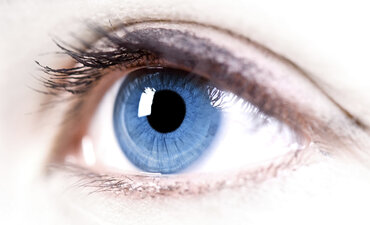Bureta Pharmacy Shop
We're 'the little pharmacy with the big heart' - our slogan explains our attitude - small in size but big in attitude, we like to go the extra mile for our customers!

If your eyes look red and feel gritty and uncomfortable, or itchy, or if there is a sticky fluid on your eyelids, you may have conjunctivitis.
Conjunctivitis is an inflammation of the conjunctiva, which is the thin lining that protects the white part of the eyes and inside the eyelids. It can clear up on its own after a week or so, but medicines can help fix it more quickly.
What causes conjunctivitis?
Symptoms of conjunctivitis generally include:
You should see your optometrist or doctor right away if:
Contact lens wearers
People who wear contact lenses have a greater risk of serious eye infections and eye ulcers, so should ask their optometrist or doctor for advice promptly.
Do not treat an eye infection yourself - go to your optometrist or doctor. If you wear disposable contact lenses, you should throw away the set you are using along with the lens case.
Do not wear contact lenses again until all symptoms have gone and for 24 hours after the last dose of any eye drops or ointment.
If you keep the lenses, you might get the same infection again.
If your lenses are not disposable, make sure you clean and disinfect them thoroughly.
What treatments are available?
Chloramphenicol, an antibiotic eye drop or ointment, is available from your pharmacist. It can help you recover from a bacterial infection more quickly.
Put 1 or 2 drops in each eye every two hours while awake for the first two days, then 1 drop every four hours for a further three days.
Alternatively, apply a short 1.5cm strip of ointment along the inside of each bottom eyelid every three hours. You may use the drops during the day and the ointment at night while asleep.
Lubricant eye drops may reduce eye discomfort and stickiness of conjunctivitis. For people with allergic conjunctivitis, antihistamines and eye drops called “mast-cell stabilisers” may help improve symptoms. Ask your pharmacist about these.
How to use eye drops and eye ointment
Self Care
A clean cloth soaked in warm water can be used to wash away secretions from the eyes and lashes. Applying a cool damp cloth to closed eyes can also be soothing.
Conjunctivitis caused by bacteria or viruses can easily spread to others, so don’t share face-cloths, towels or pillows.
Wash your hands regularly, particularly after touching your eyes, as this can help prevent spreading the infection to others.
If you have conjunctivitis from an allergy, see if you can find out what might be the cause and try to stay away from it.
Pharmacy Self Care
Other patient information leaflets similar to this one are available from our pharmacy. The leaflets are part of the Pharmacy Self Care programme and the 32 fact cards in the programme provide information on health concerns that can be managed with advice and assistance from your pharmacist. Ask about Pharmacy Self Care.
Causes of swallowing difficulties
Swallowing difficulties can happen at any age. There are a wide range of causes for them, including:
Symptoms of swallowing difficulties may include:
Swallowing difficulties can cause weight loss, dehydration and chest infections.
Let your healthcare provider know if you have swallowing difficulties. They will ask you about your symptoms and check if any other health conditions you have may be the cause.
Your healthcare provider may refer you to a specialist for tests. These may include a:
How your swallowing difficulties are treated depends on the cause and how severe it is. Treatments may include:
As well as seeing your healthcare provider, the following tips may help you to get food or liquids into your stomach.
Have a look at our range of Gloup medication lubricants here which can help with difficulties swallowing tablets...